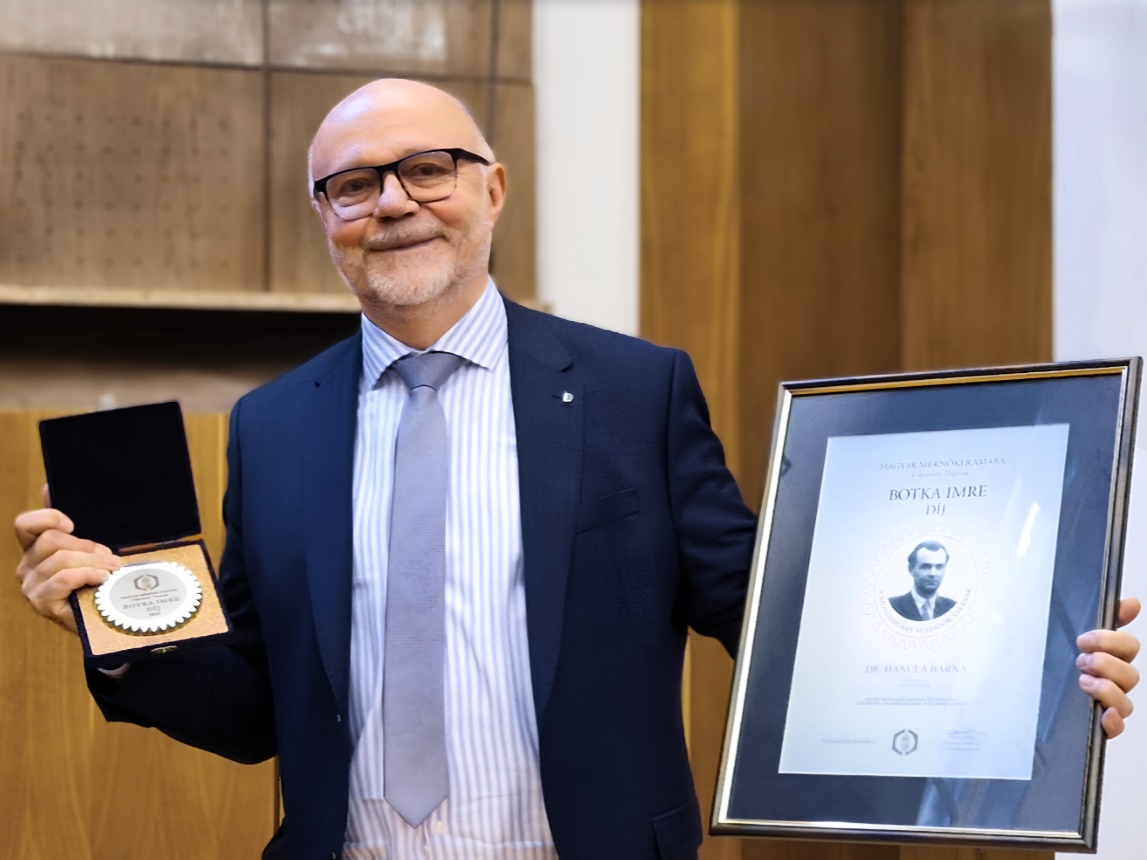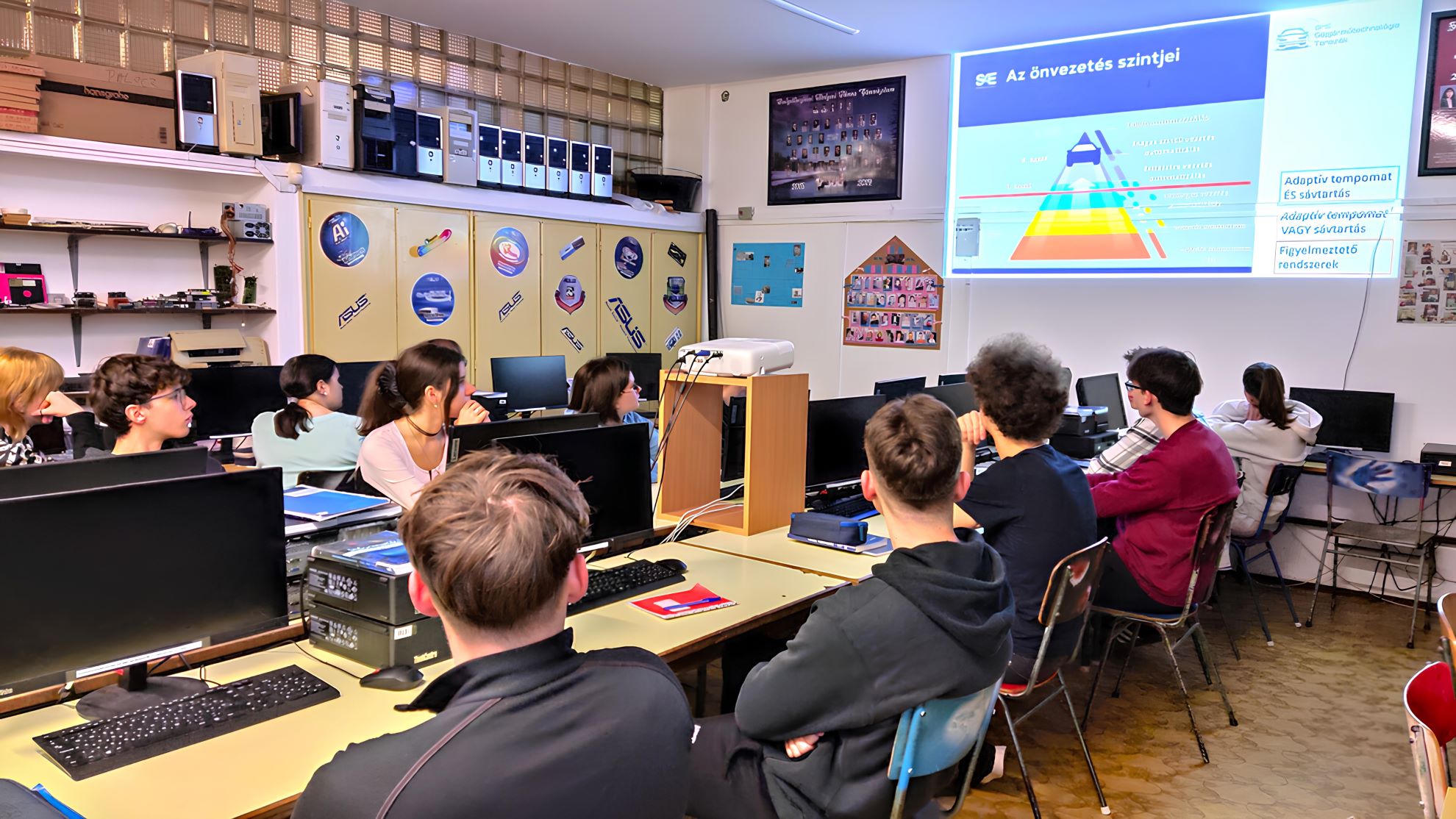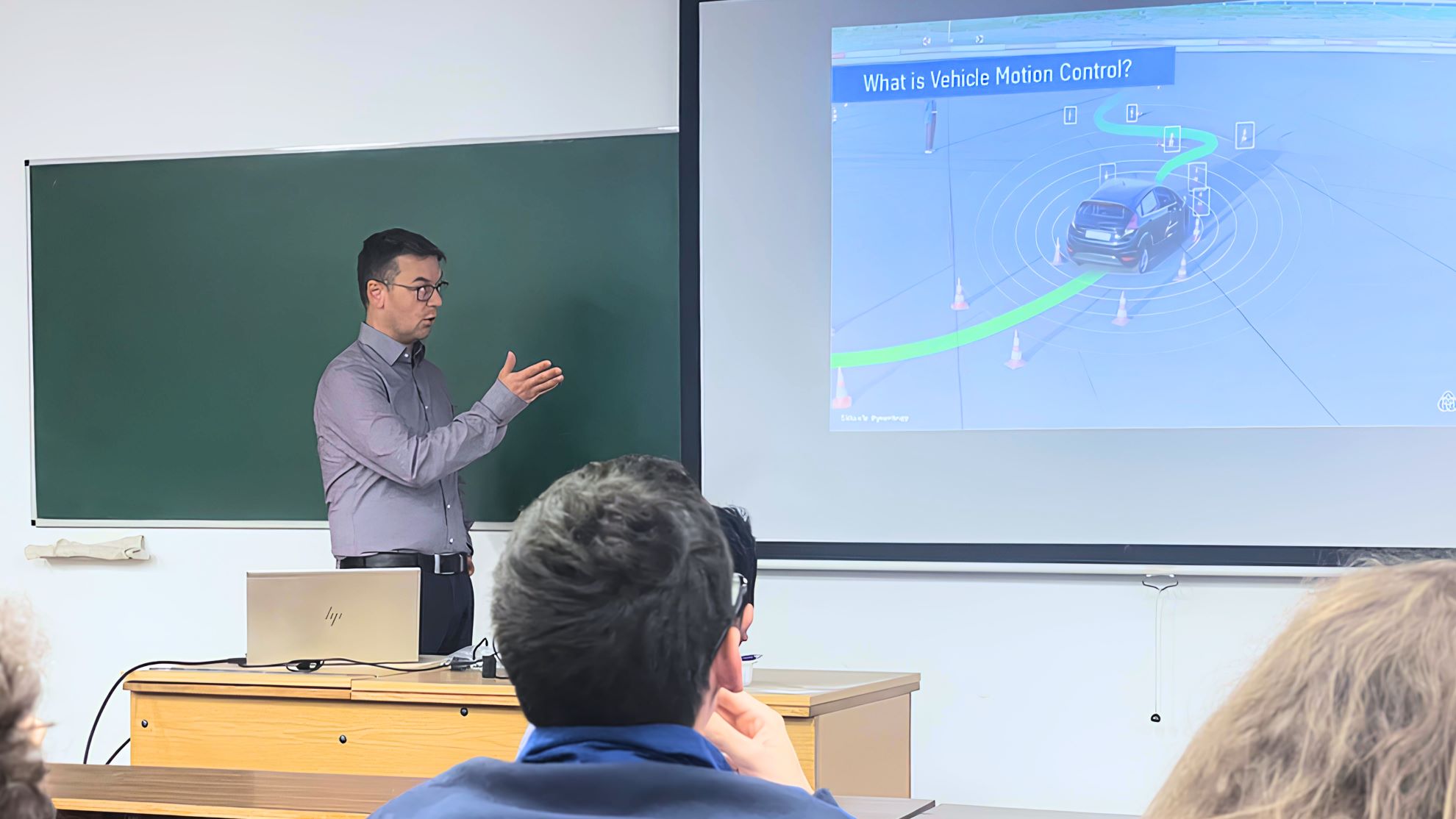The sensor network construction on the experimental section of the M1-M7 highway has been completed. The system’s configuration and calibration are underway, laying the foundation for real-time data processing and the implementation of services that enhance traffic safety.
The smart highway project on the shared M1-M7 entry section has reached a new milestone. The completion of the sensor network by the end of November has enabled the start of the configuration and calibration phase. Fine-tuning of the sensors—such as LiDARs, cameras, and RADARs—and the synchronization of hardware and software are ongoing to ensure the precise and real-time processing of data.
Time synchronization among the sensors, during which their internal clocks are aligned to a reference clock, is being conducted with 100-nanosecond precision. The triggering process ensures that cameras capture images precisely when LiDAR sensors signal them, creating accurate and coherent datasets. Additionally, the spatial calibration of sensors is taking place to allow data to be interpreted within a unified reference coordinate system.
“The construction of the sensor network was an incredible engineering achievement, but it’s only the beginning—we are now working to integrate the sensors and processing algorithms into a perfectly coordinated system,” said Dr. András Rövid, the BME project lead. “This is an incredibly exciting phase, as the value derived from the data is already impressive, and the next steps will allow us to fully harness the system’s potential.”
Building the Digital Twin
The next major milestone involves processing and labeling point clouds and training AI-based detectors. This will enable the system to identify and categorize traffic scenarios, including the precise position, orientation, and size of vehicles. The digital twin model is expected to be ready by the end of February, followed by drone-based validation conducted by Bosch.
Enhancing Safety
The project aims to create a real-time system that not only increases traffic safety but also identifies the causes of congestion. Uniquely, it will be capable of detecting dangerous driving behaviors, such as passing on the right, sudden braking, or tailgating.
A Mobile Application to Support Drivers
In the project’s next phase, expected in April-May 2025, a mobile application in the pilot phase will be launched. The app will assist drivers with real-time, personalized information, providing updates on traffic events, potential hazards, and optimal routes.
Supporting Automotive Development
The smart highway project is not only aimed at improving traffic safety and efficiency but also provides a valuable foundation for research and development in the automotive industry. The sensor systems integrated into the infrastructure and real-time data analysis create opportunities for testing and fine-tuning new vehicle technologies, such as autonomous driving systems. The project serves as a unique platform for domestic and international automotive stakeholders, facilitating faster market entry for future transportation solutions.
International Comparison
This development stands out on a global scale, as a similar system exists only in China, covering a longer section. However, Hungary is unique in the region in its efforts to support data-driven traffic safety and efficiency through real-time processing.
“With this joint project, one of Europe’s and the world’s ‘smartest’ road sections has been created, enhancing Hungary’s reputation in the automotive industry. We provide opportunities for testing new technologies and automotive developments in real environments. This opens new horizons in traffic management and safety by alerting drivers to dangers beyond the limits of perception. We eagerly anticipate applying the pilot project’s results to everyday road operations and traveler information services,” said Máté Verdes, Head of the Intelligent Transportation Systems Department at Magyar Közút Nonprofit Zrt.
Setting a European Benchmark
The developments on the M1-M7 section not only enhance traffic safety and efficiency in Hungary but also set an example for advancing digital infrastructure at the European level. The smart highway technology places Hungary’s transportation system at the forefront, establishing a vital foundation for future mobility solutions.
The scientific development is being carried out by the BME Automated Drive research team in collaboration with Magyar Közút Nonprofit Zrt. under the Eureka Central System (2020-1.2.3-EUREKA-2021-00001) project.


